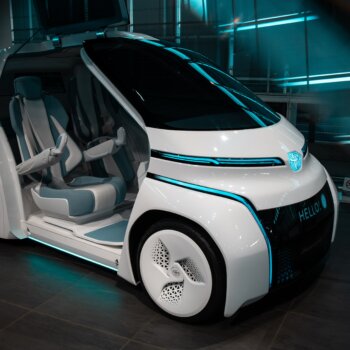I often meet startup entrepreneurs who are amped up about heir new venture.
They typically have one hundred things already figured out and they’re convinced about their future success. I love to be around this enthusiasm and I love driven risk-takers. Still, few battle plans survive first contact. Building a business is a constant struggle revising, pivoting, and innovating on the fly. One of the things that typically comes up quite early is word-of-mouth and public relations. How do you get people talking?
Most people have the wrong idea about word-of-mouth. They confuse word-of-mouth with reputation.
Your startup will earn a good reputation by continuously deliver value to customers. For a great reputation, a business must deliver best-in-category value. As time passes, your reputation and your fanbase will slowly build and manifest. Word-of-mouth, on the other hand, typically travels much faster. But what does this mean?

As it happens, I have a dishwasher and I frequently buy dishwasher tablets. Over the years, I’ve come to learn that some tablets work much better than others. I’ve also learnt that there are notable differences in price points between different brands. Through trial and error, I’ve found my dishwasher tablet brand of choice based on an acceptable compromise between price and quality. I really don’t think about it much, but that’s the dishwasher tablet that I put in my cart when I’m grocery shopping.
Inside my head, and inside the head of others who have reached the same conclusion about dishwasher tablets that I have, this particular brand has earned themselves a good reputation. Even if we don’t go around discussing our tablet preferences with each other, the favourable reputation is there. But the only way to get me to talk about it is to specifically ask me what brand I would recommend. To get me talking, you must prompt me. And herein lies the main difference between reputation and word-of-mouth.
The basic premise of word-of-mouth is that people will bring up your subject — unprompted.
Imagine two friends meeting at a café to catch up. What will it take to have at least one of these two people to start talking about your business spontaneously? No matter how strongly I feel about a certain brand of dishwasher tablets; the likelihood of me starting a conversation around them is basically zero. For the sake of everyone involved, we must assume that I’d talk about topics that would be of interest to us both.
So, what would these two friends talk to each other about? We tend to talk about what’s amusing, shocking, scary, unexpected, appalling, demonstrative, and adorable. In essence: We talk to each other about what entertains us.

Most startups have reasonable ideas on how to raise awareness (publicity work, advertising) and how to improve their reputation (customer satisfaction, referrals), but few have realistic ideas on how to instigate word-of-mouth. And this is perfectly understandable; entertainment is undoubtedly the most illusive aspect of the trifecta of brand awareness.
Most people think of entertainment as in the entertainment industry, like Hollywood or Netflix. However, entertainment is also interpersonal; we entertain each other constantly.
This is where we must make another important distinction. Today, many emphasise the importance of storytelling in communication. But when it comes to word-of-mouth, people talk to each other — and you’re not personally invited to participate in this interaction. And this is why I remind startup entrepreneurs to distinguish between storytelling (telling a story) and “storycrafting” (crafting a story).

In terms of corporate communication and marketing, businesses in general — and startups in particular! — should focus less on storytelling and more on storycrafting.
For a modern day example; look at the entrepreneur extraordinaire Elon Musk. The volume of word-of-mouth-worthy stories that are flowing from him and his companies are nothing short of amazing. From how he challenges the fossil fuel industry, almost goes bankrupt, and sends a sports-car into space to how he sells flamethrowers, smokes weed on air, and experiment with baby names. But would you say that Musk is a great storyteller? If anything, he’s mostly quite awkward in public settings.
Traditionally, when we talk about storytelling, we imply both the creation as well as the mediation of the story. “A great storyteller” typically points to both the story creator and the story narrator as if they intrinsically must be one and the same — which is rarely the case. And this is why we need the term “storycrafting”.
Therefore, my startup advice would be this:
Arrange a storycrafting workshop. Brainstorm by letting your team share their most entertaining stories about your business. And, to this, add ideas on stories that can be manifested. As a filter, keep and refine the stories that people would consider telling each other, unprompted, even when you’re not around — a sort of “word-of-mouth test”.
Then, create an internal story booklet for your startup and share your stories wherever and whenever you can. Add one of these stories to your next blog post, another to your next press release, or include one in your next keynote address. Have your c-level executives and your salespeople share stories. Talk to journalists and talk to influencers; they’re making their living from telling stories.
And most importantly: Do things that will make for good stories.
About the Author
This article was written by Jerry Silfwer is an awarded freelance consultant specialising in digital strategy and public relations. Based in Stockholm, Sweden. See more.





























